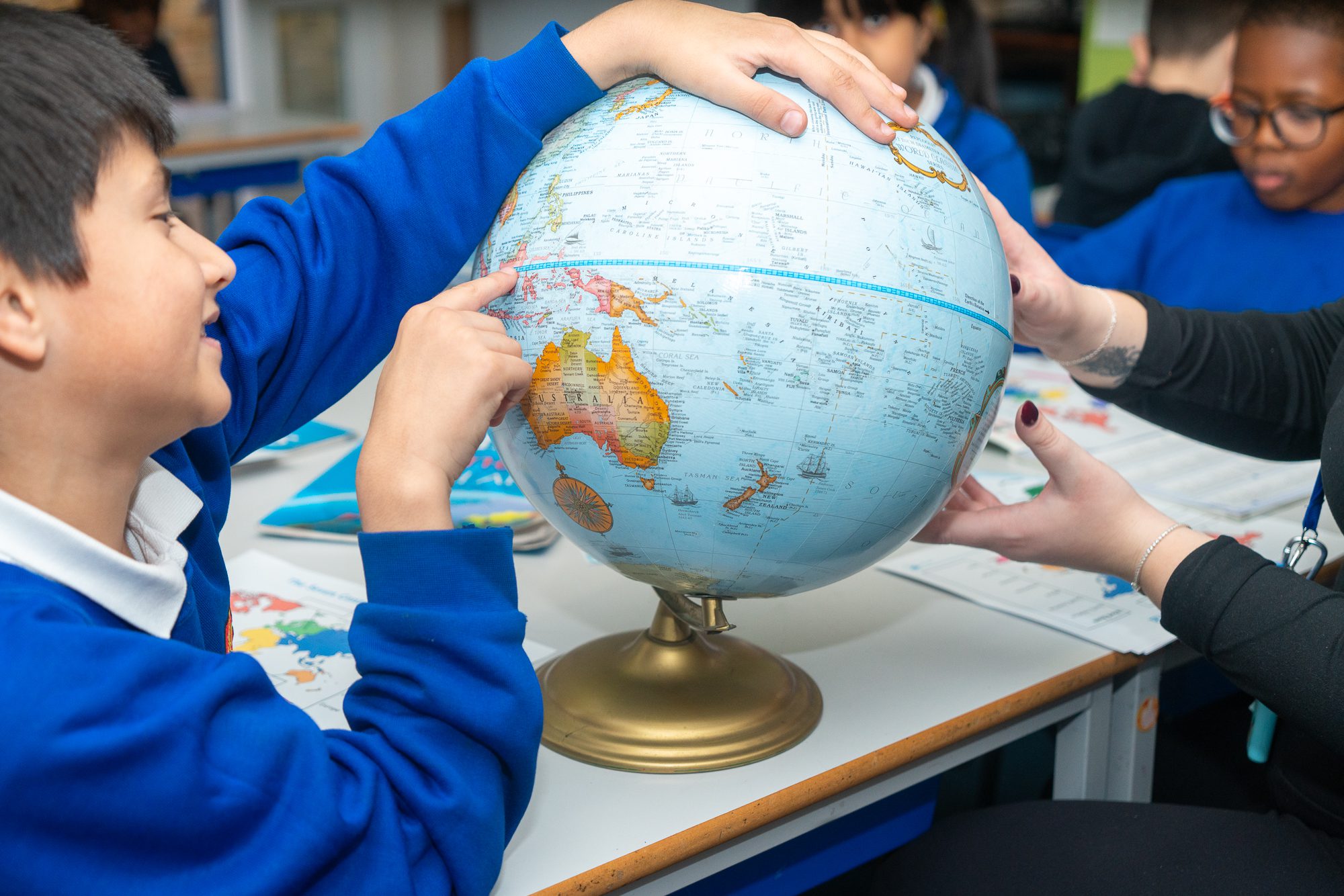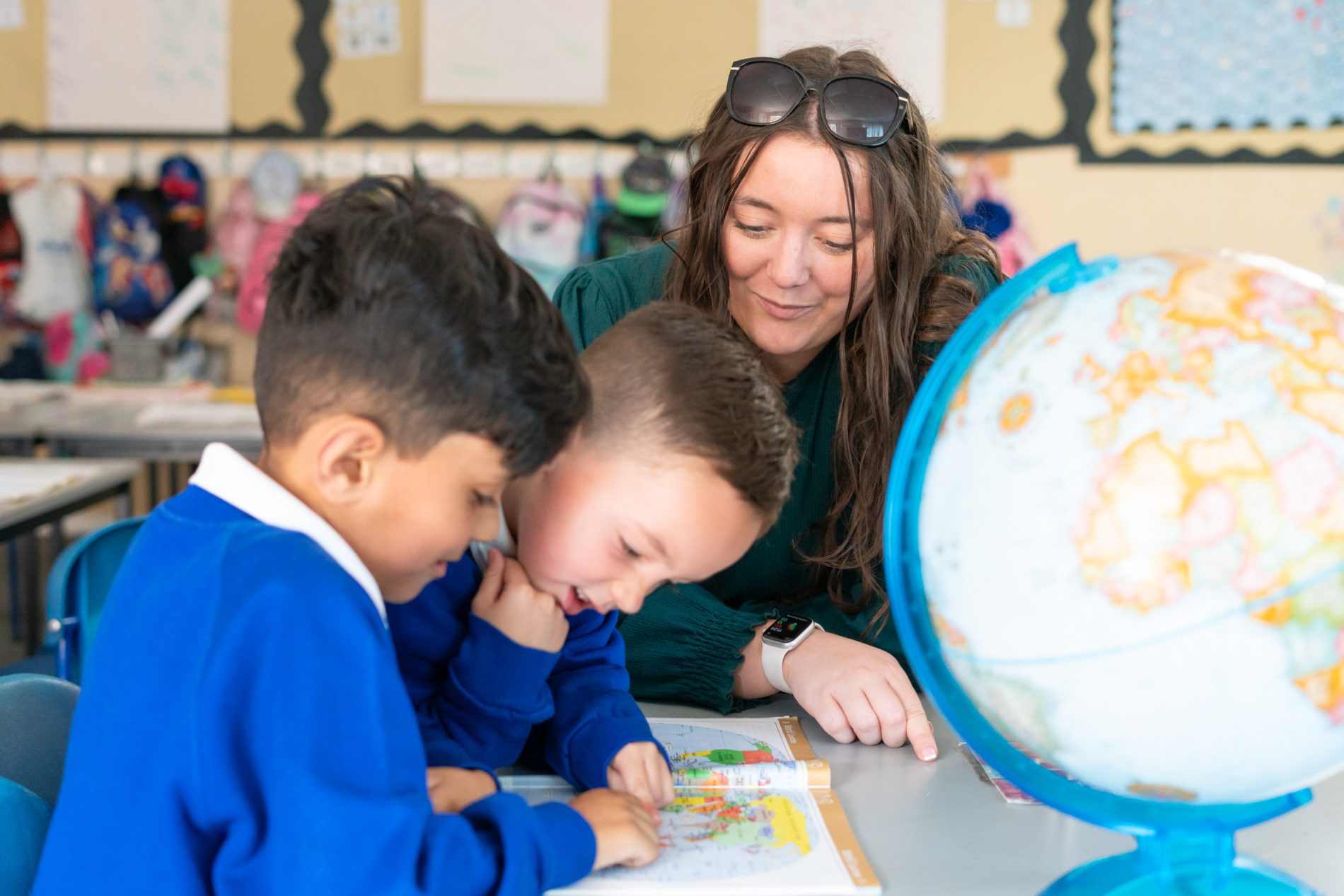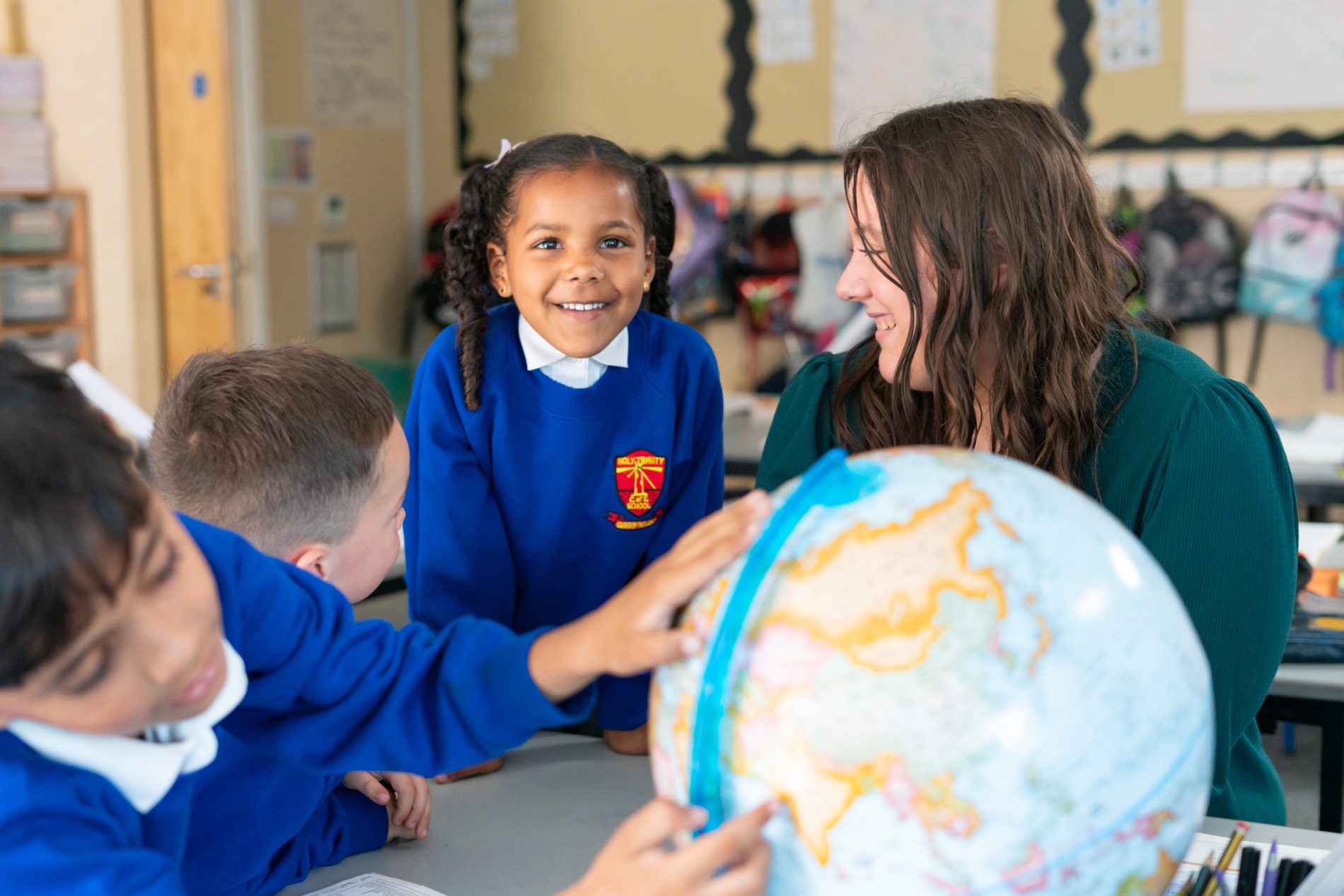Geography Subject Leader: Miss L Edwards
‘Geography’ means “writing about the world.” We hope geography will enthuse the children’s curiosity so that they can share their passion and the knowledge they have gained in this subject.
For any more information on Holy Trinity’s geography Curriculum, please contact the office.
Intent
At Holy Trinity Primary School, we believe geography should fill the pupils with awe and wonder. Pupils will expand their knowledge to find out about the world and the people that live in it so that they have a deeper understanding.
Throughout our geography curriculum, our pupils have experiences that they will remember for the rest of their lives. These experiences will serve as building blocks as the pupils progress through the school to enable them to have a broader knowledge of the subject of geography.
Through geography, they will develop contextual knowledge of the location of globally significant places including defining physical and human characteristics. Pupils will understand the processes that show key physical and human geographical features of the world.


Implementation
Our geography curriculum is taught through the Kapow curriculum, which looks at locational knowledge, place knowledge, human and physical geography, geographical skills, and mapwork. Knowledge and skills covered through Kapow are:
- Locational knowledge
- Place knowledge
- Human and physical geography
- Geographical skills and fieldwork
All of this stretches from Nursery to Year 6 and is taught on several occasions each time, building on previous learning ensuring that pupils are competent in the geographical skills needed to: collect, analyse and communicate with a range of data gathered through experiences of fieldwork that deepen their geographical knowledge. Through revisiting and consolidating skills, our lessons help pupils build on prior knowledge. All pupils will expand their skills within the four areas of geography listed above.
The pupils can be competent in the geographical skills needed to: collect, analyse and communicate with a range of data gathered through experiences of fieldwork that deepen their understanding of geographical processes; interpret a range of sources of geographical information, including maps, diagrams, globes, aerial photographs and Geographical Information Systems (GIS); communicate geographical information in a variety of ways, including through maps, numerical and quantitative skills and writing at length.
In addition to this, pupils are taught about the United Kingdom, identifying human and physical characteristics, key topographical features (including hills, mountains, coasts and rivers), and land-use patterns, and understanding how some of these aspects have changed over time. as well as compare and locate the world’s countries, using maps to focus on Europe (including the location of Russia) and North and South America, concentrating on their environmental regions and key physical and human characteristics.
Impact
The pupils’ knowledge obtained in geography will give them a coherent understanding of the different strands of geography and the ability to be active participants in a global society. Throughout our curriculum, we use Kagan approaches, which enable the children to become confident speakers and hold discussions with their peers in all aspects of geography. It is with this knowledge that they will be able to use what they have learnt in geography across the curriculum in a cross-curricular way, applying it to many other subjects.
Outcomes in books, as well as pupil voice, demonstrate the geography curriculum to be broad and balanced, identifying the key knowledge that they have acquired throughout their primary years.
In an ever-changing, diverse world, geography allows pupils to gain knowledge about different cultures and traditions, including how different/the same people can be and how environments can also be the same and different too and how we can embrace this. Consequently, geography gives pupils the information and knowledge that they can use for the future, they can begin to consider the impact that choices they make can have and empower them to become better local and global citizens.

Geography in Each Stage
Geography is taught within the area of Understanding the World in the Early Years Foundation Stage. They will experience The Natural World and make observations and draw pictures of plants. They look at similarities and differences between the natural world and contrasting environments using their own knowledge as well as what they have read to them also. They learn about important changes within the natural world which includes the seasons. In addition, when looking at similarities and differences in this country and life in other countries they learn through stories, non-fiction texts about maps which is cross curricular with mathematics. Planting seeds and caring for plants going on to understanding the key features of the life cycle of a plant. They begin to learn how to respect and care for the natural environment. Lastly, in this specific area, they learn that there are different countries in the world, and they can talk about the differences they have either experienced or seen in photographs.
Pupils will develop knowledge about the world, the United Kingdom, and their locality. They should understand basic subject-specific vocabulary relating to human and physical geography and begin to use geographical skills, including first-hand observation, to enhance their locational awareness.
Pupils will be taught;
Locational knowledge – naming and locating the world’s 7 continents and 5 oceans. They also name, locate and identify characteristics of the 4 countries and capital cities of the United Kingdom and its surrounding seas.
Place knowledge – they will understand geographical similarities and differences through studying the human and physical geography of a small area of the United Kingdom, and of a small area in a contrasting non-European country.
Human and physical geography – identify seasonal and daily weather patterns in the United Kingdom and the location of hot and cold areas of the world in relation to the Equator and the North and South Poles. They will use basic geographical vocabulary to refer to key physical features for example, beach, cliff, coast as well as key human features for example, city, town, village, farm.
Geographical skills and fieldwork – pupils learn to use maps, atlases, and globes to identify the United Kingdom and its countries. Using simple compass directions of north, south, eat and west as well as locational and directional language so that they can describe features and routes on a map.
Pupils will extend their knowledge and understanding beyond the local area to include United Kingdom and Europe, North and South America including the location and characteristics of a range of the world’s most significant human and physical features.
Pupils will be taught;
Locational knowledge – locate the world’s countries, using maps. Name and locate countries and cities of the United Kingdom and identify the significance of specific geographical vocabulary.
Place knowledge – in studying geographical similarities and differences in the places they are comparing.
Human and physical knowledge – they will describe and understand key aspects of physical geography for example climate zones and the water cycle and human geography for example settlement and land use.
Geographical skills and fieldwork – They will use maps, atlases, globes and digital/computer mapping to locate countries and describe features. Use the 8 points of a compass to build knowledge. As well as using fieldwork to observe, measure, record and present the information they have found out using a range of methods.
SEND Information
Consideration will be given to how learners will be aided to support the school’s commitment to inclusion. Geography lessons will be accessible to all, with teachers adapting and differentiating the expectations and activities based on the needs of the children in their classes.
Geography Extra Resources
Further Geography Help

